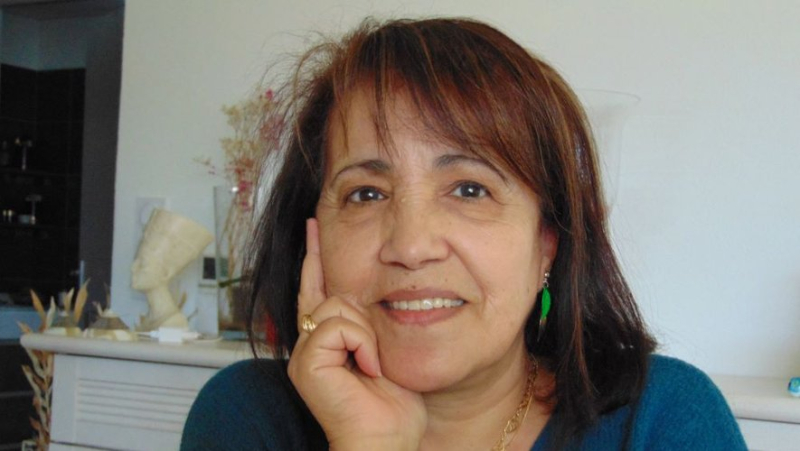Ghalia Thami in search of her buried brother, the fight of a life

Ghalia Thami veut retrouver la trace des cimetières sauvages.
The native of Oran lived for some time in the Rivesaltes camp before arriving in France. There, she lost her little brother, who was later buried in a wild cemetery. Narrative.
After the promulgation of the law on the recognition of the nation towards the Harkis, Ghalia Thami led a long-term battle, so that the excavations could finally begin in the Rivesaltes camp. Indeed, there are wild cemeteries, of which we have lost track, in the camps, and the families want to give a dignified burial to the deceased.
Born in Oran, following the independence of Algeria, Ghalia Thami emigrated with her family to France at the end of the war. "We were brought in transit to the Rivesaltes camp, I was 8 years old. We lived in unspeakable conditions, in tents, surrounded by barbed wire, without hygiene. We suffered greatly from the cold, we had frostbite on our feet, it was very painful, she remembers.
His mother gave birth in very rudimentary conditions to a little boy who died three days later. "I don't know where in the camp he was buried. Everyone was silent."
A few days later, the family left for Villemagne, in the Gard.
"My mother died at the age of 48, with her secrets. I felt a little unfinished because we didn't get to talk about my little brother. But we grew up and did well."
Return to camp
Two years ago, Ghalia took a memorial trip to Rivesaltes. "I didn't know what reaction I was going to get. But, when I found myself in front of the stele with my brother's name, everything came back to me. I broke down. Where the bodies are buried ? I then met Nadia Gouafria who, thanks to hard work and all obstacles, discovered twenty-seven graves in the Saint-Maurice-l'Ardoise camp, in Gard. I went to meet her and I saw this cemetery in a wasteland and I have this image, forever engraved in my memory."
Nadia Gouafria, for her part, discovered this camp through her research, particularly in the Departmental Archives. "For my part, my little sister died in Marseille and was also buried in a camp. We are very concerned by these wild cemeteries. You have to be tenacious. We know that there is one in Rivesaltes, we must fight. Our union will be our strength, underlines Nadia Gouafria, the president of the Soraya Mémoire association.
"Mourning"
Sixty-two years after these events, Ghalia Thami is fighting for excavations to begin in Rivesaltes. She contacted the Secretary of State because the excavations were supposed to begin this spring 2024, but were interrupted for administrative and ecological problems. "When will we be able to find this cemetery and find the bodies, so that the families can pay their respects at the graves ?" , ask the two women. 146 people are buried, 85% of them babies. "Our fight with Nadia is to speed things up. My mother left too soon, without knowing where her child's body was. Today, I have inherited this traumatic shock and it is my duty to take up my pilgrim's staff, to lead my fight for the memory of my mother and for all these wounded beings as well as the memory of the families who are affected in their flesh by this atrocity. So that we can finally live peacefully and mourn."
Correspondent Midi Libre: 06 83 48 50 18




